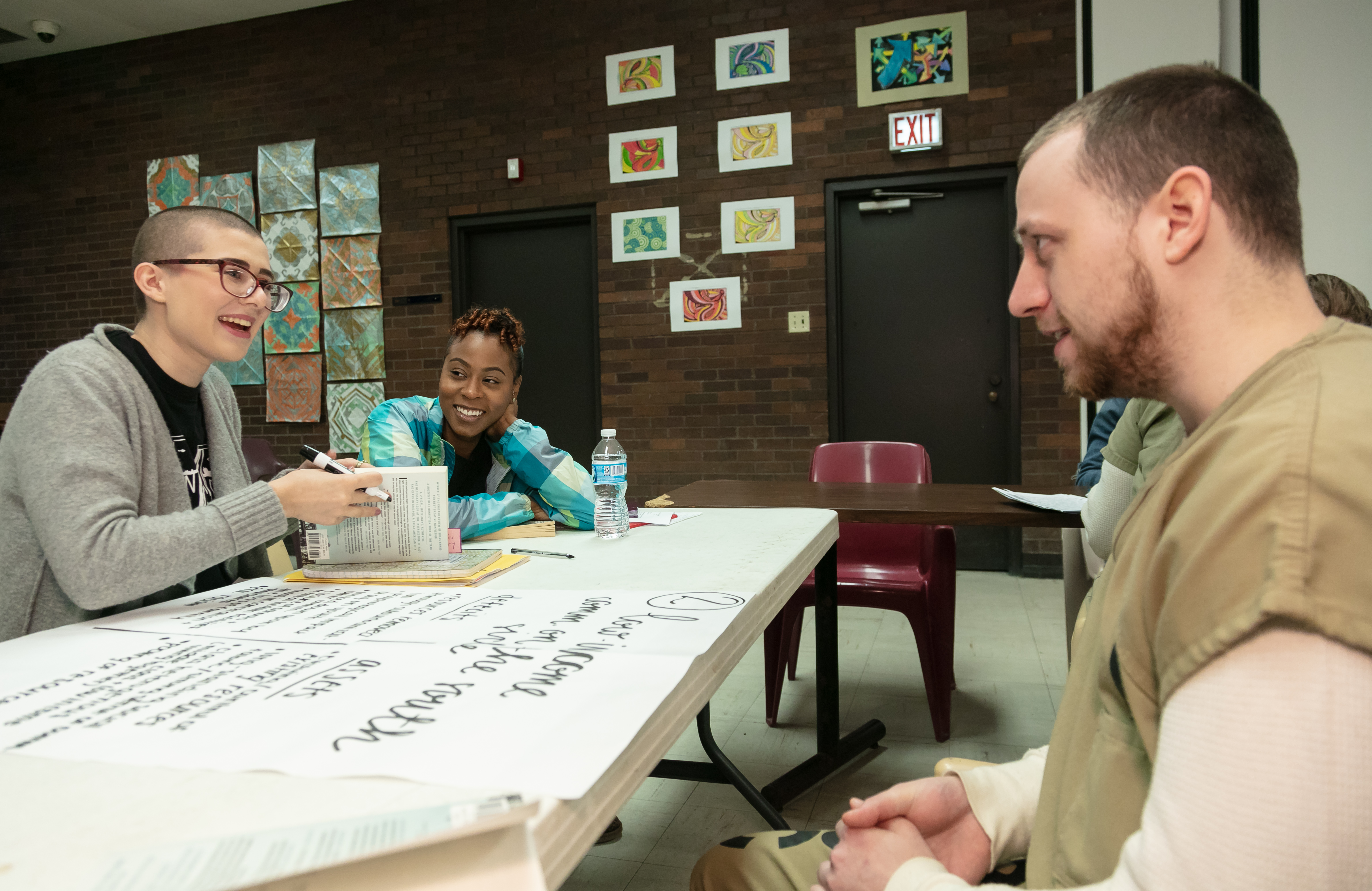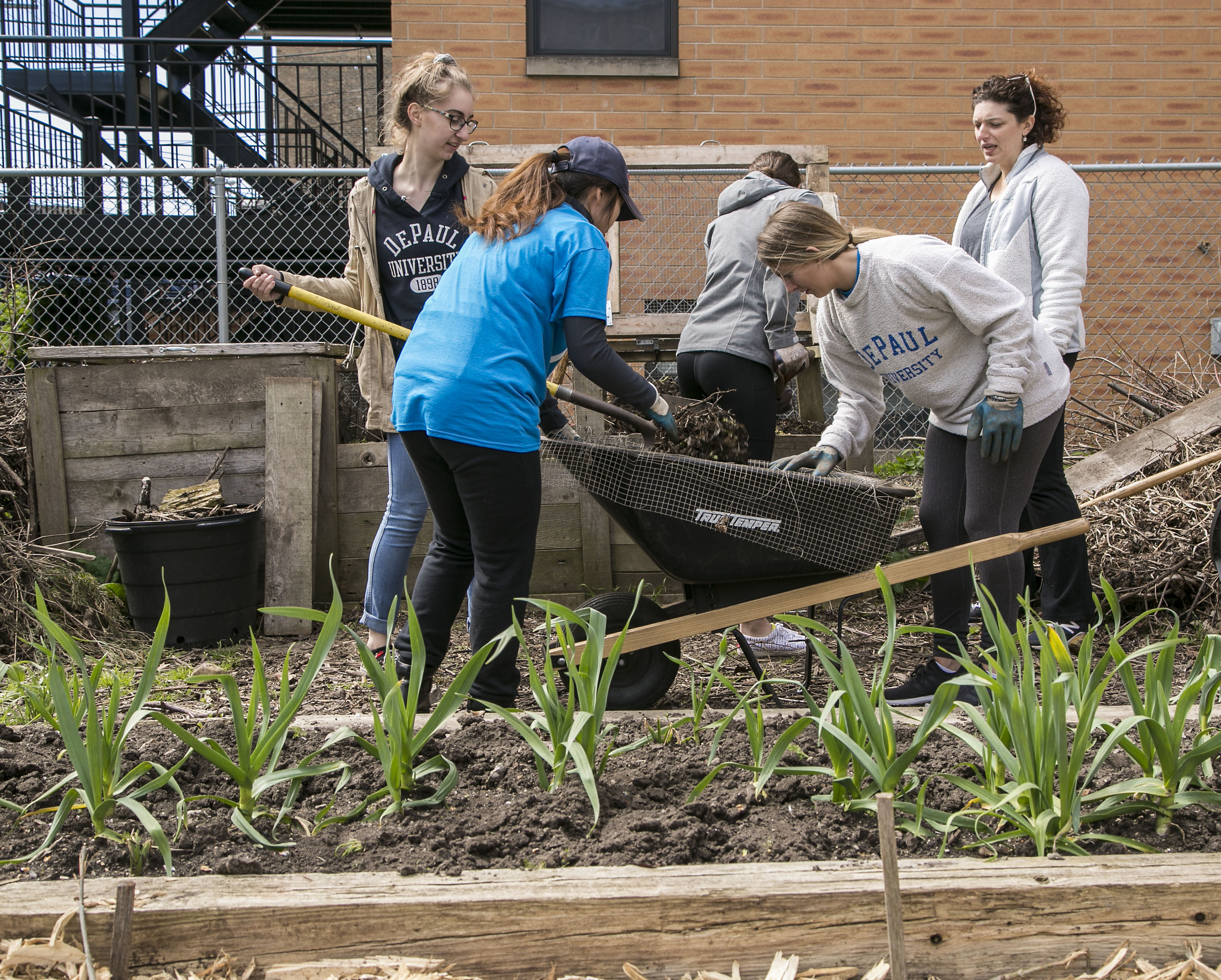DePaul University maintains a wide range of community partnerships across various communities and sectors in the city of Chicago and beyond. These partnerships enable DePaul to channel its collective talent and resources to contribute in positive ways to various communities and individuals, while enhancing student learning and their development as socially responsible leaders in the spirit of the university's Vincentian mission. Just some of the partnerships include:
Inside Out Prison Exchange Program

Through support from the Steans Center, Community Service Studies launched DePaul's Inside-Out Prison Exchange Program in 2012. Based on the national program established at and supported by the Inside-Out Center at Temple University, DePaul trains faculty and students to learn together with students on the inside of the prison system.
DePaul's Inside-Out program is a direct reflection the university's Catholic identity and Vincentian mission to respect the dignity of each person. This personalism is manifested through solidarity with those who live in the most dire circumstances. The university's Community Service Studies Minor in the College of Liberal Arts and Social Sciences engages prisoners as equals through facilitating the offering of courses onsite at Stateville Correctional Center outside Joliet, Illinois and at Cook County Jail on Chicago's Southwest Side. These courses bring DePaul students and inmates to together to learn as peers, engaging in a variety of topics depending on the faculty member and the course offering. More about DePaul’s Inside-Out Prison Exchange Program can be found here.
Vincentian Service Day

Vincentian Service Day (VSD) is an annual tradition at DePaul. Started in 1998 as part of DePaul’s Centennial celebration, VSD is a day when over 1,000 DePaul students, staff, faculty and alumni participate in a day of service with over 50 community partners in the Chicagoland area and in cities around the country. More about Vincentian Service Day at DePaul can be found
here.
Big Shoulders Books

With a goal of producing books that engage intimately with the Chicago community, Big Shoulders Books produces and distributes free of charge books by and about Chicagoans whose voices might otherwise not be heard. More than 50,000 books have been distributed internationally, ranging on topics from youth violence, teen relationships and romance, immigration and illness, and veterans of war.
The project is handled primarily by students and faculty in DePaul's M.A. in writing and publishing and English undergraduate programs, providing those students hands-on, practical experience in book publishing. More about Big Shoulders Books can be found
here.
How the DePaul community can get involvedCollaboratory™ is a web-based platform that tracks and monitors partnerships, activities and collaborations among universities and their communities. DePaul launched Collaboratory to systematically collect a broader range of data on its various community engagement and public service activities. This data helps the university tell a more robust story of how DePaul faculty and staff are engaged in communities, create meaningful student learning opportunities, and partner with the community in mutually beneficial and reciprocal ways. This information also provides the university with evidence for DePaul’s strategic plan, the Carnegie Classification for Community Engagement, and helps demonstrate how DePaul fulfills its Vincentian mission.
How information gets into CollaboratoryFaculty or staff may enter information directly into Collaboratory at any time. Collaboratory is easy for you to use - to get started, log-in using your campus connect password at
https://he.cecollaboratory.com/depaul. Once you have logged in the first time, you can edit your personal profile, begin contributing community engagement or public service associated with your community engaged research, outreach programs, events, course-based experiences and co-curricular activities.
How Collaboratory can be useful1. Find community partners, identify existing relationships or build new relationships.
2. Discover if other faculty on campus are also working with the same community partner.
3. Find faculty/staff who are doing community-engaged work by topic (e.g., education, social justice, mental health).
4. Search projects based upon populations (e.g., youth, immigrants, elderly).
5. Document relationships and projects over time in order to illustrate how engagement activities are connected to teaching and research, funded or sustained, and the impact of engagement.